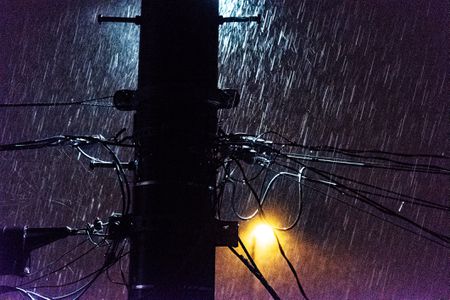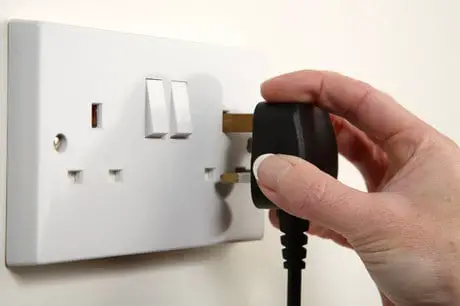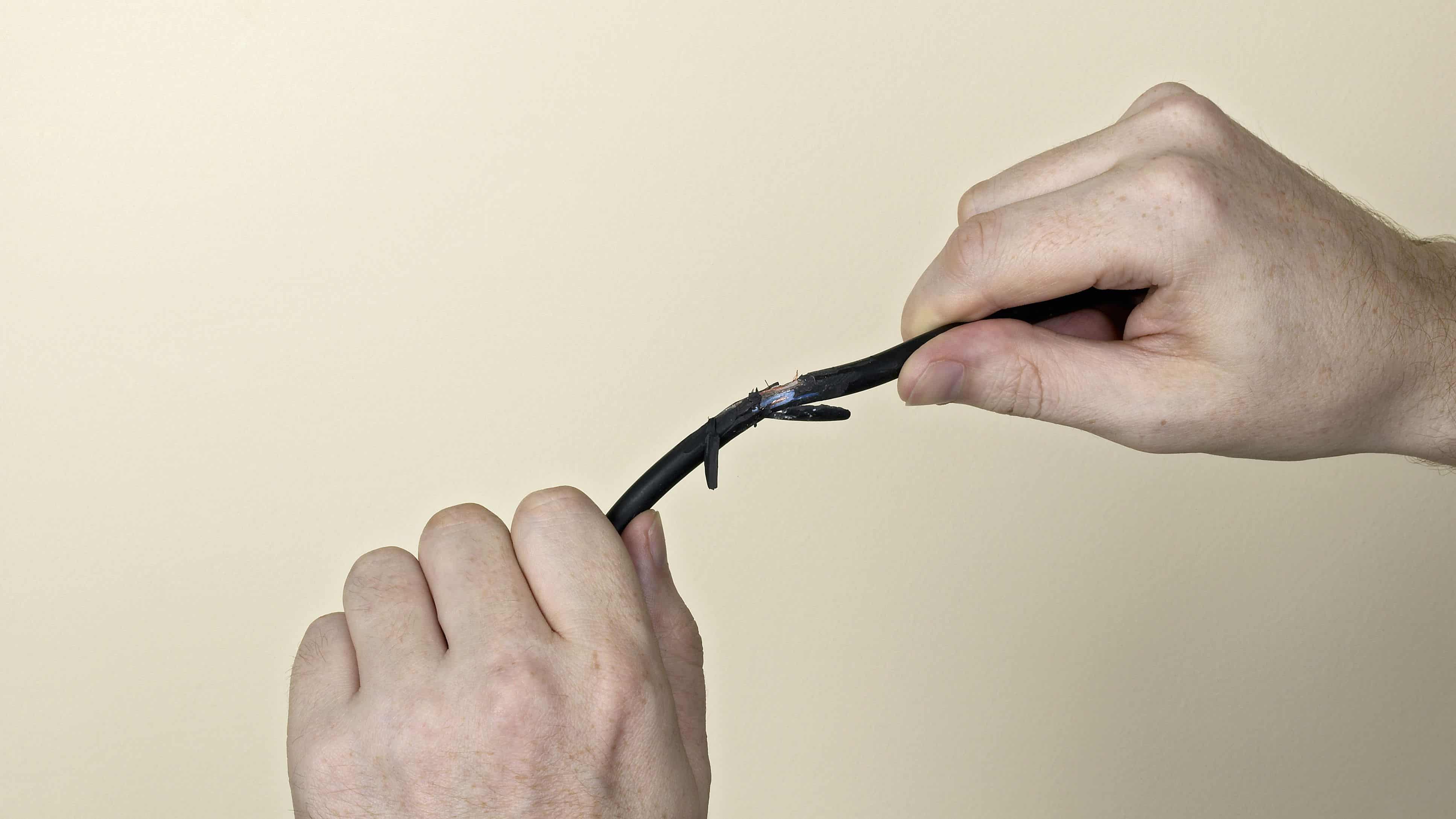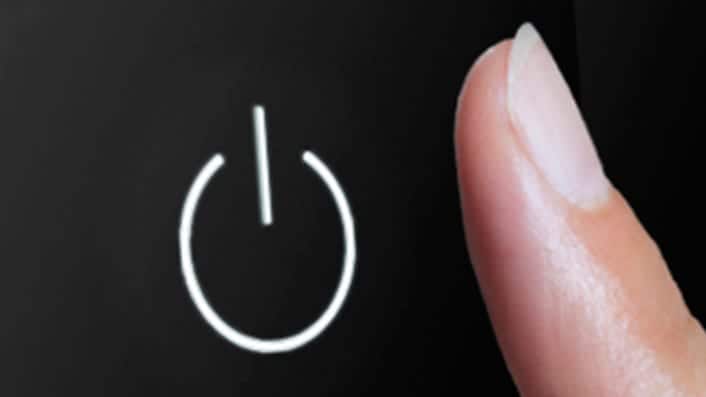 Water and electricity just do not go hand in hand! In fact, they are the worst enemies!
Water and electricity just do not go hand in hand! In fact, they are the worst enemies!
Whichever job might be you are into, rainy season will surely not spare you from drenching in water.
Well, there are several risks in working with electricity in the rainy season. The lightning flash charges up water bodies with electric ions and thus, if you happen to step on that water, you are sure to encounter a severe electric shock! Also rainy season brings out faults and damages in the wirings of the building and even charges up the buildings with electricity. One small advice is to put off all the high voltage points in the building during lightning and avoid touching electric connections with bare hands while it’s raining!
Not only this, but there are several other do’s and don’ts of handling electricity during the rainy season and this article will help you to know all about them.
The Things You MUST Do
1.) Make sure to use only the electrical appliances wires and cables that have the FCC standard mark as followed in the US:
It might look like a bit pinch on the pocket initially, but in the long run it’s going to save you from regular wire damages and breakdowns.
The FCC certified electrical appliances are tested to comply with FCC standards and it has been approved will assure you of the quality of the things and save you from electrical hazards too.
2.) The connection for high voltage consuming appliances should be availed through a three pin plug socket:
Three pin plug sockets are built to carry heavy loads (high voltage current) and therefore, you should always avail the connection of high voltage appliances through the three pin plug sockets.

Availing the connection of high voltage consuming appliances through normal switch boards will only put excessive load on the main meter and as a result, your normal socket might get burnt and even end you up in accidents. You sure don’t want that right?
3.) Get the electrical wiring and the connections done by a licensed electrician:
Now you may ask, “Stephen is that really necessary?” and I will say, “Yes it is hell necessary!”
The reason behind it is the licensed electricians are the trained ones who have actually done courses on electric works. And as they are trained, they know exactly how to handle the works which socket to install for what appliance, how much load must be put for a certain electric point.
The ones those who are not trained might not have in depth knowledge about the use of exact voltages for the particular point.
4.) Check for damages regularly:
Electrical wires are to become faulty mainly during the rainy season. You won’t believe me guys this year I was just saved from encountering a high voltage while switching on my Television and ended up changing my entire wiring of the house!

As I said at the very beginning that water and electricity are real enemies, so it becomes obvious to check for any faulty appliances, break in the joins of the wirings, short circuits regular by a trained electrician.
If not done, it will cost both your money as well as your life!
5.) Make sure that you always switch off the supply before you remove or insert the plug socket outlets:
The main supply is in abundance of electricity and keeps on supplying power to the sockets and open points. Therefore, you should always switch off the main supply before you insert or remove plug sockets.
6.) Immediately replace the damaged switches, wires, sockets and appliances:
Damaged switches, open circuits or broken wires will only increase the risk of hazards if you happen to touch them accidentally.
Get them repaired by trained electrician. And it is not at all advisable to join those using adhesive tapes as the danger remains the same in that case. Change the entire set up for better safety.
7.) Do not forget to switch off the appliances when not in use:

It might happen by chance that you forget to switch off the appliance after use, which is pretty normal and usual. But this calls for great risk: the appliance might get over heated due to excessive passing of the current in it or it might burst causing harm to the people nearly, or in other cases a person might not be aware of the appliance being on and touch it and receive the high voltage shock from the socket points.
8.) In case of heavy thunder and lightning, seek shelter immediately under the roof:
While your work might demand you to work outdoors, when you sense thundering and flash of lightning, immediately rush under a roof. This will save you from the lightning being struck at your body.
And obviously you won’t want to get drenched in water and catch cold.
9.) While it’s thundering outside, avoid using high voltage appliances:
While it thunders and lightning flashes in the sky, there is a heavy fluctuation of current and the main supply point sends unsteady voltage to the various electric points in the building.
Using high voltage appliances at this time will not only be risky, but also might cause short circuit and power cut in the entire building.
10.) While it’s raining, do not touch the electrical connections in barefoot:
If you do not know, let me tell you that our body is a very good conductor of electricity and when you stand bare footed while working with electricity, you only attract the current in your body. Therefore, always try to wear shoes while dealing with electricity especially during the rainy season.
See also: Best Work Boots for Electricians (EH Rated, Safety Toe and Comfortable)
The Things that you Should NOT do
1.) Installing switches near water sources:
If you install switches near water sources, there will always be the chance of the water being in contact with the electric source; be it naturally or be it through someone working in the water and touching the electric switches with the wet hands.
In any case, there is a chance of getting a shock from the switch when you try to put them on or off. Switches should be installed far away (say at least at a distance of 5 to 10 meters from the water source).
2.) Inserting metals like nails in place of concealed PVC conduit wiring:
Look you really do not know where your electrician has installed the concealed PVC conduit wiring because it’s hidden inside the walls.
So, when you try to insert any sharp object like nails on the walls you might unknowingly damage the wiring that is underneath and as a result your entire building might be under the danger of conducting electricity.
So, if you want to drill something on the walls, mark the safe location by confirming from the electrician and get him to do the drilling done.
3.) Touching the damaged kinks and joints of wire with bare hands:
Now you might scream at me, “Oh come on Stephen! Why on earth someone is going to do that?”
But believe me, there are people on this earth, some extraordinary ones, who can take this risk willingly! And not I, the facts and records say so. A number of people encounter severe shock while trying to mend broken wires with adhesive tapes. They think it to be that easy!
Touching damaged kinks with bare hands will only give you a high voltage shock and it might prove to be fatal as well. Your electrician is just a call away, so why take the risk?
4.) Leaning against electric poles:
This might not apply to people in general, but to the ones working in the poles; the linemen. It’s obvious for them to lean on the poles to take rest or just rest their back on the poles while working with the pole cables.
But this can become very risky in the rainy season when the poles might be conducting electricity while in contact with water.
5.) Touching the snapped electrical conductor:
I now you are not going to do that normally, but if situation demands so, I suggest wearing rubber gloves before performing any such activity.
6.) Choosing your site location near electricity offices:
Now if you think that by choosing your site location near electric offices will benefit you with a stable electric supply with no power cuts, you are absolutely wrong. It will only accelerate your problem and make you encounter severe up and down in the voltages with increased risk of electric shock from the cable points.
There will also be risks of arc and flash fire from electricity in the nearby electric office.
Therefore, try to locate your site at a distance of minimum 10 kilometers from electricity offices.
7.) Taking shelter under trees and tents:
Did you know that trees attract electricity? During thunder and lightning, tall trees are the ones to draw the electricity from the lightning. And if you are the unlucky one seeking shelter under that tree, only God may save you!
Therefore, in case of these situations, try finding shelter under wooden or cemented roof only.
8.) Standing in water-logged areas:
Your work might demand working in the water if you are a pipe- liner or a fisherman or even anyone involved in the construction works which demands dealing with water.
During lightning, the water might get charged up with electric ions and conduct it to your body. So, once the sky gives you signal of pouring down, immediately get off with the touch of water-logged areas.
9.) Standing near open windows and doors:
Have you heard of lightning flashes hitting the buildings? Yes there are several of such cases!
And worse, open windows and doors are the spaces that attract lightning the most. I think you are smart enough to avoid the danger, right?
10.) Climbing poles while it’s raining:
I know linemen have to work in any situation, but not over life I guess?
Yes, for the very same reason that during rain there is a chance of the entire electric pole getting charged with electricity, you might encounter severe shock while climbing the poles at this time.
Try to at least wait for the time until the lightning has stopped. Also, climbing poles in water might be risky in the sense that you might slip off easily losing your grip.
It’s Time to Bid Adieu!
Well well well! It’s time for me to take farewell from you for today’s article.
I hope you enjoyed reading this piece of writing and will try to follow the advices given here.
Remember, workgearz.com thinks of your safety first over any material gain because we believe Life is God!
Have a good day ahead guys!
Take care till we meet again!
And…
Stay safe!







